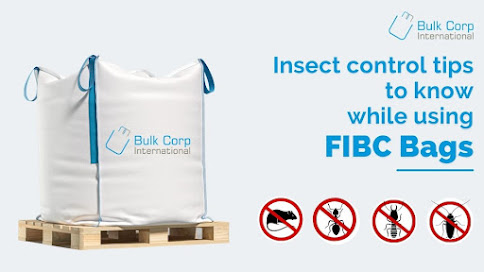Insect Control Tips to Know While Using FIBC Bags

Piles of product packages, each running up to 3000lbs, stacked up neatly in a storage facility infested with pests, is a situation equivalent to a nightmare for any producer. Particularly so if you deal with food-grade products like sugar, flour, nuts, and pulses, etc., which are easy prey to insects and rodents. In such a case, the damage caused may tip your company’s balance sheet in the wrong direction. Tackling the problem of insects is inevitable if you have a large-scale storage facility to handle goods, be it food or non-food materials. Even when you are using properly sealed FIBCs to store the products, pests and insects may attack, causing damage to both the products and the bags. How can you prevent the quality of your product from getting compromised? Here are some time-tested tips to control insect infestation while using FIBC bags for your products. Make your storage preventative for insects to breed:- Insects thrive in dark and damp places. They pr...



